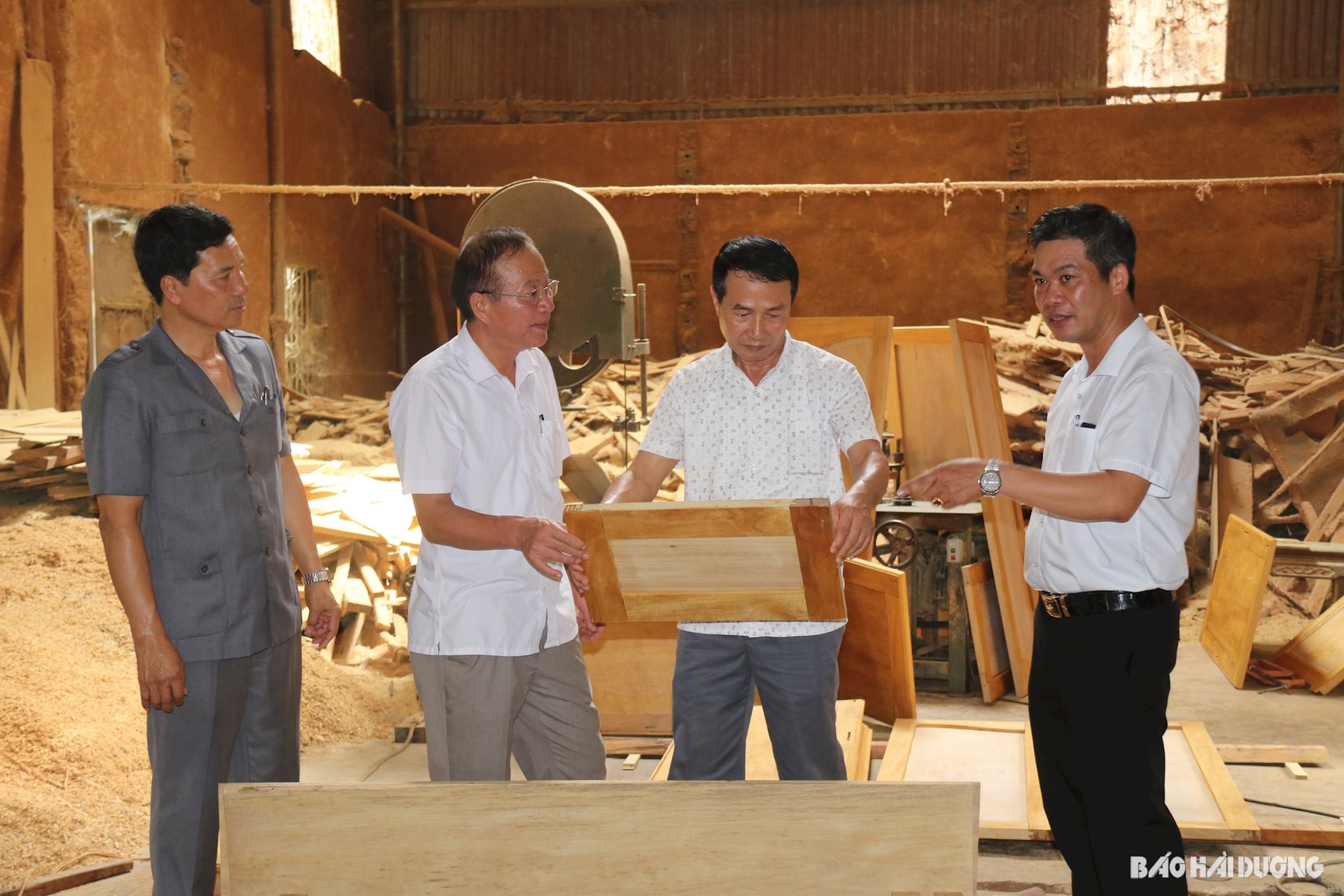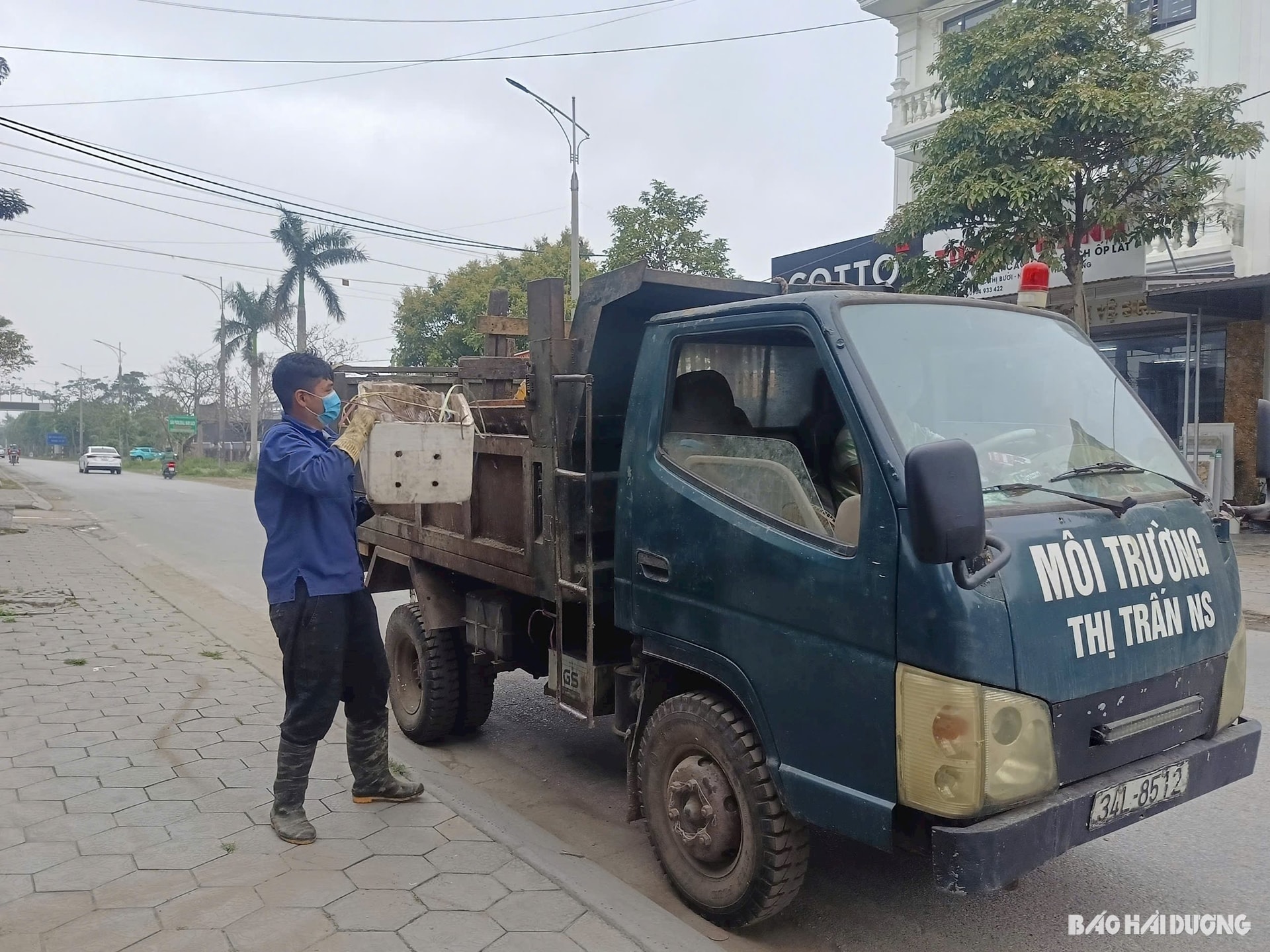Not only a "lifesaver", the National Fund for Employment (abbreviated as Fund 120) is an important catalyst promoting the development of cooperatives in Hai Duong.

Borrow to change
Every day, members of the Nam Sach Town Environmental Sanitation Cooperative (Nam Sach) divide into two shifts to collect household waste. The first shift lasts from 1:30 a.m. to 9 a.m., the second from 2:30 p.m. to 6 p.m. With no days off, they diligently collect 8-12 tons of waste per day in 12 residential areas and 50 agencies and businesses in the area.
Previously, collection was mainly done by rudimentary carts, which were both labor-intensive and did not meet the demand as the amount of household waste increased. Even after switching to trucks, the cooperative still faced difficulties due to lack of vehicles. In the context of limited resources, support from the Provincial Cooperative Union opened up new opportunities.
The Nam Sach Town Environmental Sanitation Cooperative has completed the documents and borrowed 300 million VND from the 120 capital source to invest in specialized garbage trucks. Mr. Nguyen Huu Thang, Chairman of the Board of Directors and Director of the cooperative, said that to reach this decision, the cooperative had to meet carefully, clearly define the goals and commit to effectively using each capital. Because borrowing capital is one thing, but how to use it is the big issue.
"After one year, the amount of garbage collected doubled, the streets were cleaner, people were satisfied, and members had a stable income of about 6 million VND/month," said Mr. Thang.
Not only in the field of environmental sanitation, many agricultural cooperatives are also effectively exploiting the 120 capital source towards modern production and value chain linkage. At Thai Hoa Agricultural Service Cooperative (Binh Giang), Ms. Le Thi Ly - a member borrowed 200 million VND to restore more than 10,000 m² of melon greenhouse collapsed in storm No. 3 in September 2024.
“At that time, even a few tens of millions of dong was very valuable. When the cooperative introduced me, I immediately completed the loan procedures. Thanks to this capital, combined with a bank loan, my family was able to restore the entire damaged area,” Ms. Ly shared.
Up to now, her family's melon greenhouse system has been operating stably, creating jobs for 5 local workers with an income of more than 5 million VND/person/month.
According to Mr. Nguyen Van An, Director of Thai Hoa Agricultural Service Cooperative, after borrowing capital, the important thing is to have a transparent financial plan, long-term development orientation and determination to implement it to the end. "If you are not determined, no matter how much capital you have, it will be difficult to succeed," Mr. An emphasized.
Currently, the cooperative has 17 members accessing capital of 120 with a total amount of more than 1.6 billion VND. All members use it for the right purpose and achieve clear results.

Do it for real, it works.
As of early April 2025, the Hai Duong Province Cooperative Union has successfully secured loans for nearly 30 organizations and individuals, including cooperatives and members, totaling more than VND 2.5 billion from the National Employment Fund. The purposes of the loans are very diverse, from expanding production, building greenhouses and net houses to applying high technology in growing clean vegetables and fruits.
The results showed that the revenue of the cooperatives that borrowed capital increased significantly, from 500 million to 1.5 billion VND/year. The profit reached 100 - 300 million VND/year, creating regular jobs for local workers with an average income of 6 - 8 million VND/month.
Mr. Tran Van Thu, Director of Mai Hong Cooperative (Kim Thanh District) shared that borrowing capital is for real work. If you only take capital and do not invest it in the right place, it is no different from wasting development opportunities. Two years ago, his cooperative borrowed 450 million VND from the 120 capital source to invest in wood processing machinery. Thanks to the timely capital, the cooperative expanded production just when the market demand increased.
The success of cooperatives also comes from a thorough screening process before providing capital. According to Ms. Nguyen Thi Thu Huong, Chairwoman of the Hai Duong Province Cooperative Union, not everyone who has a need can get a loan. Cooperatives must demonstrate their management capacity, clear capital usage plans, and profitability.
“We do not encourage borrowing to follow trends. Successful cooperatives all have in common the fact that they invest in the weakest link in the production, business and transportation chain - the place that needs to be strengthened the most to create momentum for the entire system,” said Ms. Huong.
Ms. Huong also said that many people still have prejudices that cooperatives are an outdated economic model, but reality has proven that if you know how to do it and dare to do it, cooperatives are fertile ground for creativity and sustainable development.
The 120 capital source is not a "magic wand" that can help cooperatives change overnight, but if we know how to "borrow correctly and use skillfully", it will be a solid springboard to innovate production, create jobs and increase income for people.
The above experiences and successes are just the beginning. The key is still the heart and vision of the cooperative workers - those who know how to plan ahead, calculate carefully, and dare to think and dare to do. In the context of Hai Duong agriculture needing strong impetus for restructuring, those who "know how to borrow - are good at using" will be the factor contributing to reshaping the appearance of a modern, effective collective economy that is closely connected to the farmers of the same homeland.
MINH NGUYEN